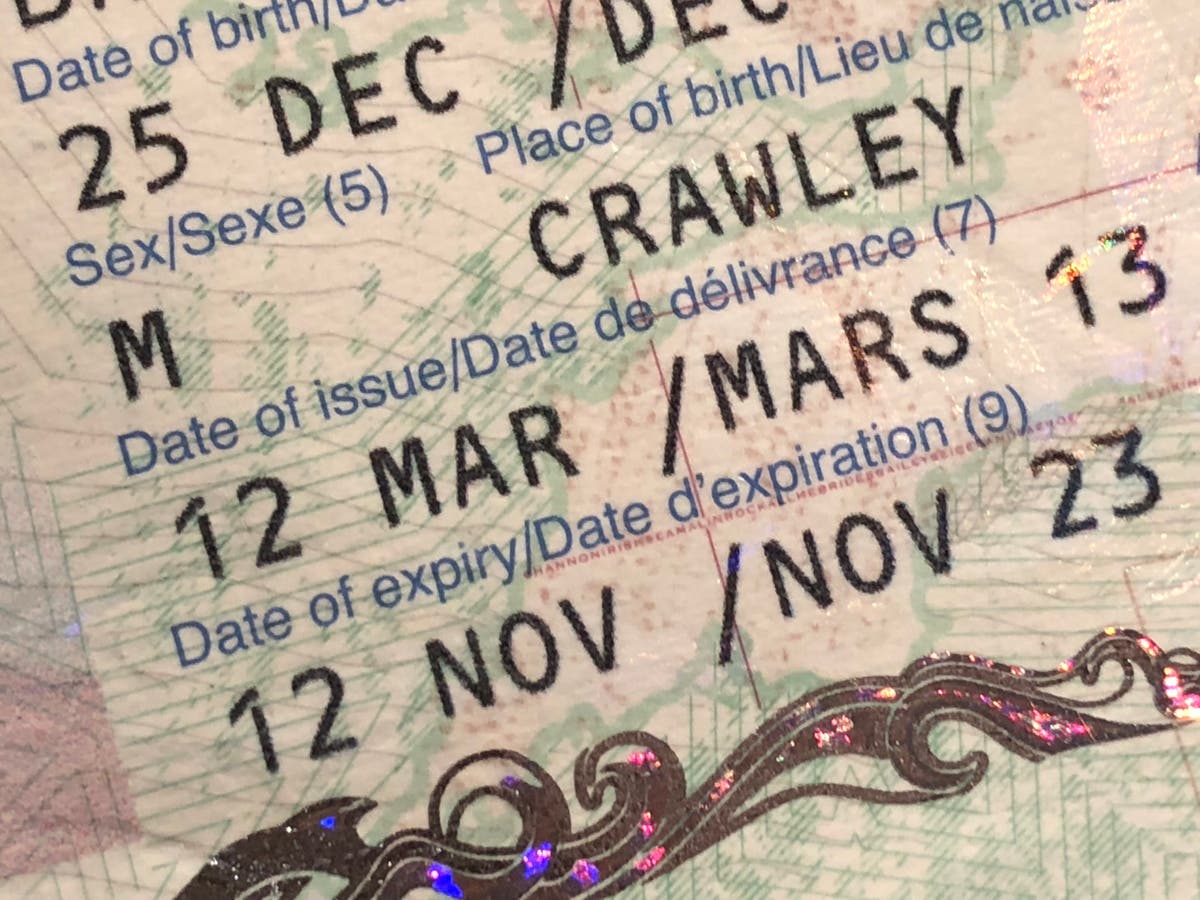10-year rules, expiry dates and Brexit beef: 10 passport myths debunked
While passport validity rules and individual immigration requirements do exist, there is a lot of bad information out there. Simon Calder busts the top 10 myths you’ll find on the internet

Now that the Foreign Office has finally aligned its travel advice for the European Union with the actual rules in Brussels, it’s time to tackle some of the myths that are being spread by social media, print media and even parts of the travel industry about UK passports.
Here are 10 of the most scarily common - but utterly wrong - claims about passports you’ll find out in the ether.
1. “Your passport runs out nine years and nine months after the date it was issued”
This ridiculous fabrication is not true - and never was true. In fact your passport runs out at the end of the expiry date printed on it.
Some countries impose their own rules about minimum validity.
The European Union – which includes Britain’s favourite holiday destinations, Spain, France, Portugal, Italy and Greece – and wider Schengen Area countries insist that three months remain before the expiry date on the day you plan to leave the EU.
The EU also has a stipulation that British passports should be issued in the past 10 years on the day you enter. But Brussels has never had a “nine year, nine months” rule.
2. “The maximum 10 years rule applies worldwide”
No it doesn’t. It applies only on the day of entry to an EU country (or a Schengen Area nation, including the non-EU Switzerland, Norway and Iceland). Everywhere else cares only about the expiry date.
3. “Children’s passports run out after five years”
Not if they have been issued for longer than five years, they don’t. The maximum validity for a passport issued for a child under 16 in the UK is five years, nine months. Blindingly obviously, this is within the European Union’s 10-year-since-issue rule (outside the EU, no one cares about the issue date anyway).
4. “Whatever the expiry date says on your passport, it is really only valid for 10 years after the issue date”
Will whoever is spreading this nonsense around, please stop?
5. “Europe is punishing the UK for Brexit”
Wrong. This is deliberate self-harm.
The UK government asked for British passport holders to become third-country nationals, and should have known exactly what the rules would be – because they were decided while the UK was within the European Union.
6. “You need a passport for Ireland”
British visitors to the republic do not require a passport – though airlines may demand one for a journey to the country (Ryanair does). In such cases, there are no minimum validity rules.
7. “Minimum passport validity must be for either six months or three months, depending on the destination”
More tosh. Many popular countries, such as Australia and the US, have no minimum validity requirement. Others can choose whatever date rules they wish. Costa Rica asks for one day’s validity at the end of the trip; New Zealand insists on a month; Cuba wants two months; and India demands 180 days.
This article contains rules for the most popular destinations.
8. “Travel companies cannot be held responsible for incorrect passport advice”
Suppose you have been told that your passport is not valid when it actually is, and you have spent a fortune on a fast-track application – even having to travel across the UK to get an appointment. Or, even worse, you haven’t even turned up at the airport because you were told it was a waste of time.
While holiday firms and airlines may insist that they are not liable for any passport-related issues, anyone who suffers financial loss as a result of a company failing to act with “reasonable care and skill” may be able to claim under the Consumer Rights Act 2015.
9. “The Passport Office doesn’t offer compensation for poor service”
It certainly does, if customers can demonstrate that they have suffered financially as a result of mistakes at the Passport Office.
The organisation says: “While HM Passport Office is not legally responsible to compensate customers, we will when we are clearly at fault.
“We will consider each compensation claim on a case-by-case basis. Any payments we make will be in the form of an ex-gratia (offered as a gesture of goodwill) payment. These payments can include:
10.“If your passport does not meet the validity rules, all is lost”
Not necessarily. While The Independent urges all travellers to adhere strictly to the requirements for their destination, there are some cases in which people have been able to travel even though the rules indicate they should not be able to. This is the converse of the much more common situation where people are denied boarding even if they are qualified to travel.
It requires the traveller both to board the transport to their destination without challenge and not to be picked up at the frontier check on arrival.
One well-known sports journalist flew with easyJet to his honeymoon in Greece with a passport issued 10 years and two months earlier. And on the past three flights I have taken to the European Union, on British Airways, Wizz Air and Ryanair, no interest has been shown in the date of issue.
And one half-truth to watch out for...
“If you do not have space for a stamp in your passport, you will not be allowed in”
This is half true. It does not apply for British passport holders to the European Union. The official position is: “A separate sheet can be used, to which further stamps can be affixed. The sheet must be given to the third-country national. In any case, the lack of empty pages in a passport is not, in itself, a valid and sufficient ground to refuse the entry of a person.”
But the requirement to have space available is certainly enforced by some other countries – notably South Africa, which requires two blank pages.

 JimMin
JimMin 
































